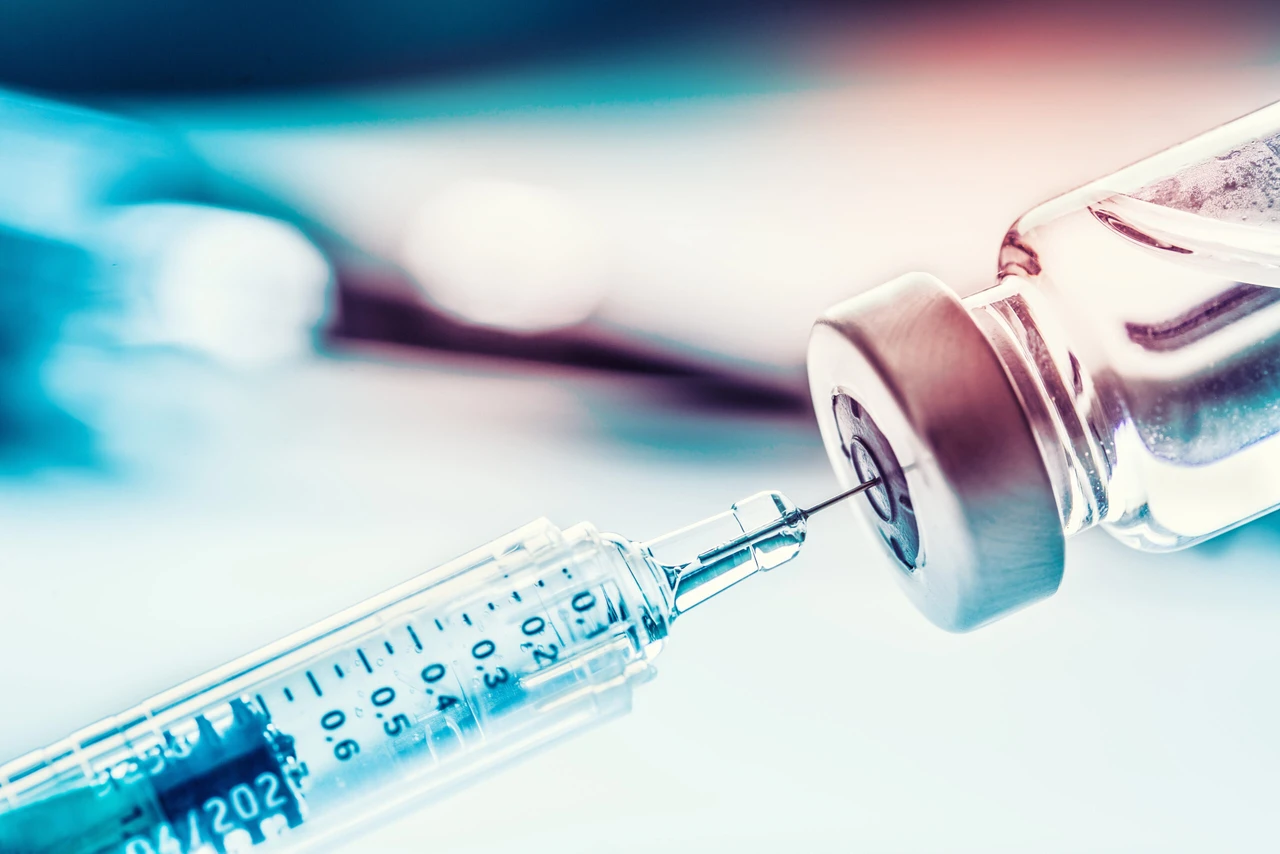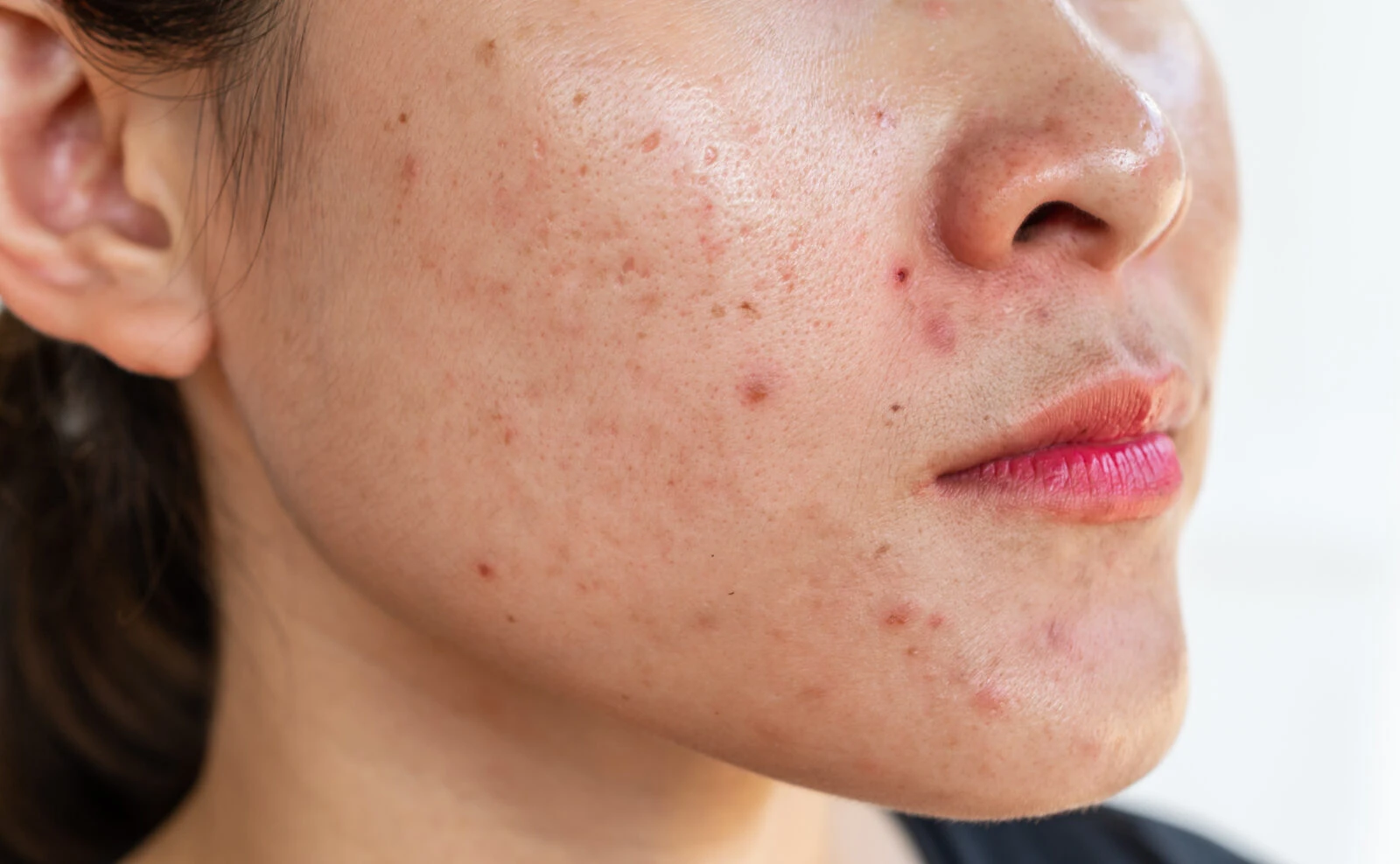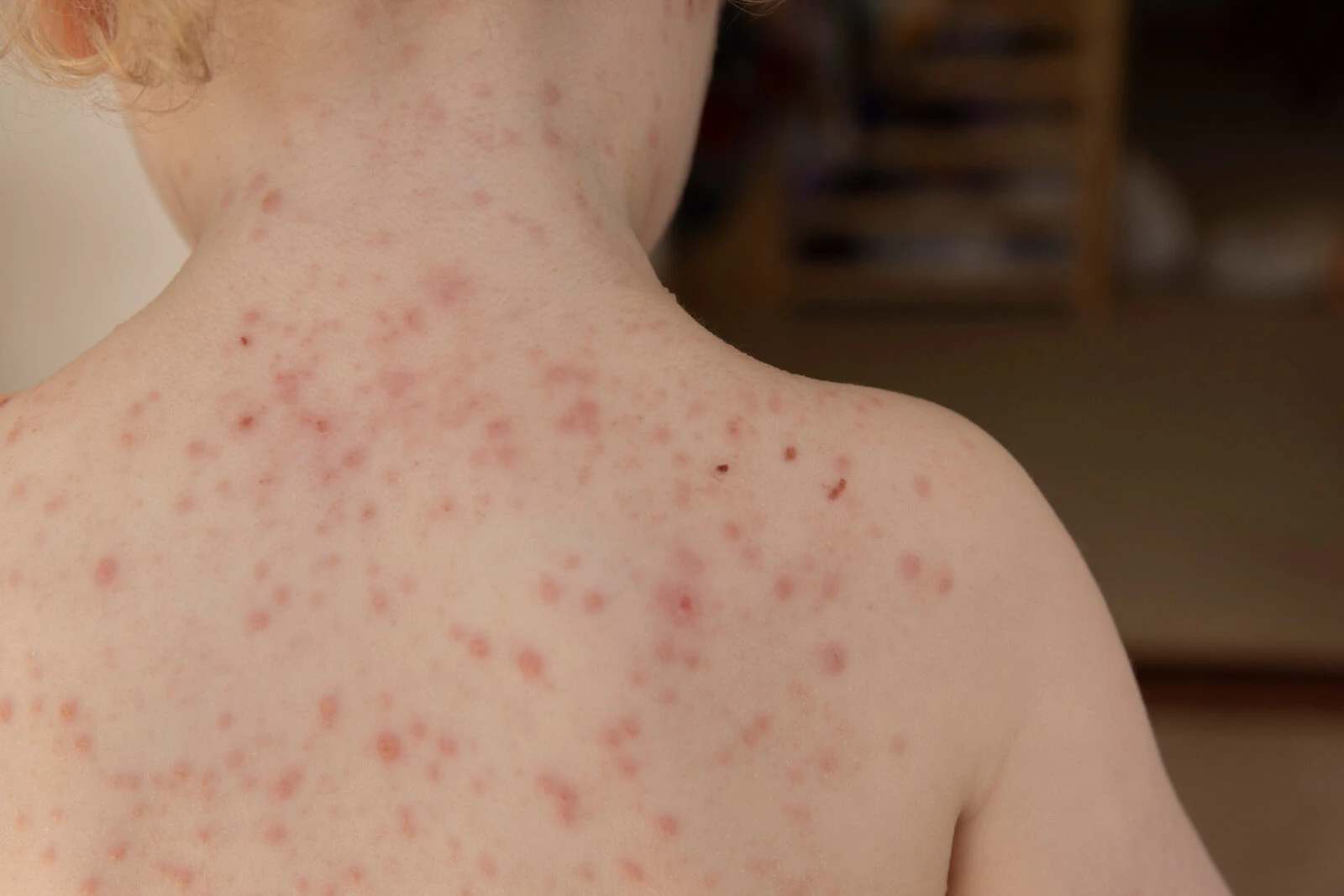What to know about scientists testing first-ever mRNA vaccine for acne
 Medical syringe drawing medication from a vial, representing pharmaceutical treatment or vaccination, accessed on April 28, 2025. (Adobe Stock Photo)
Medical syringe drawing medication from a vial, representing pharmaceutical treatment or vaccination, accessed on April 28, 2025. (Adobe Stock Photo)
Scientists have begun clinical trials for what could become a groundbreaking first-ever vaccine to treat acne, a widespread skin condition affecting nearly 95% of people between the ages of 11 and 30.
French pharmaceutical company Sanofi launched an early-stage clinical trial in April 2024 to evaluate the safety and effectiveness of an mRNA vaccine designed specifically for adults suffering from moderate to severe facial acne. The development represents a potential shift in how this common condition is treated.

Promising new approach to a widespread condition
Acne develops when hair follicles and pores in the skin become clogged, triggering an inflammatory response that forms pimples. These most commonly appear on the face, upper arms, trunk, and back. Numerous triggers can cause acne, including hormonal sensitivity, certain medications, genetic factors, and bacteria on the skin.
“(The vaccine) could help reshape the acne treatment landscape,” a Sanofi spokesperson told Live Science. The company aims to provide an alternative to current acne treatments that only control symptoms temporarily, require long-term use, and often produce undesirable side effects.
Current treatment options include topical and oral retinoids, antibiotics, and hormonal contraceptives. While these can help manage symptoms, they don’t address the root causes of acne. Additionally, treatments like retinoids can cause skin dryness and irritation, with some being linked to psychological symptoms, including depression and suicidal thoughts.
Medical experts have long expressed concern about antibiotic resistance developing from the extended use of antibiotics for acne treatment, a concern Sanofi cited when discussing the need for innovative treatment approaches.
How clinical trials work
The Phase I/II trial initiated by Sanofi is scheduled to run until 2027 and aims to recruit approximately 400 adults between 18 and 45 years old who have moderate to severe facial acne, defined by having a specific number of pimples on the face.
During the trial, some participants will receive one of three doses of the vaccine, with injections administered up to three times throughout the study period. Other participants will receive a “dummy” vaccine containing no medicine, providing researchers with a control group to accurately assess the vaccine’s safety and efficacy.

Science behind vaccine
While Sanofi has not disclosed complete details about the vaccine’s mechanism, the company confirmed it is an mRNA vaccine. This technology uses messenger RNA to deliver instructions to cells in the body, prompting the immune system to target specific proteins.
According to information shared by Sanofi, the vaccine aims to boost a patient’s immune response against specific strains of bacteria believed to contribute to acne development. The primary bacterium associated with acne is Cutibacterium acnes, making it the likely target for the vaccine.
This approach differs significantly from current treatments, which primarily focus on managing symptoms rather than addressing underlying causes. If successful, the vaccine could provide a more targeted and potentially longer-lasting solution.
Other research efforts
Sanofi scientists are not alone in their pursuit of an acne vaccine. Researchers at the University of California, San Diego, have developed a different vaccine targeting a specific enzyme variant in C. acnes bacteria.
This enzyme variant, which is only produced by acne-causing C. acnes strains, partially breaks down hyaluronic acid, a protective substance naturally produced by skin. The breakdown creates fragments that trigger an immune response, leading to the inflammation characteristic of acne.
In mouse studies, this alternative vaccine reduced acne severity by 50 percent compared to untreated animals, encouraging researchers to move toward clinical trials.
“It would be really exciting to contribute to helping patients who have suffered considerably from acne,” said Dr. George Liu, a professor of pediatrics at the University of California, San Diego, who helped develop this vaccine. However, Liu cautioned that a truly effective vaccine would need to address factors beyond bacteria that contribute to the condition.
Timeline and future prospects
Even with promising early results, the development timeline for vaccines typically spans about a decade from initial design to regulatory approval and widespread availability.
After this initial safety and efficacy trial concludes, Sanofi plans to launch a separate Phase I clinical trial in 2027 to test the vaccine’s effectiveness for patients with milder forms of acne.
Many questions remain unanswered, including how frequently the vaccine would need to be administered, the duration of its beneficial effects, and whether it could serve as a preventive measure rather than just a treatment for existing acne.
Data collection for the current trial is scheduled to end in 2027, with Sanofi planning to share results “in due time.” Even with positive outcomes from this trial, additional testing will be required before the vaccine can reach dermatology clinics and become available to patients.
If successful, this vaccine could represent a significant advancement in dermatological treatments, potentially offering relief to millions who struggle with acne and its physical and psychological effects.



